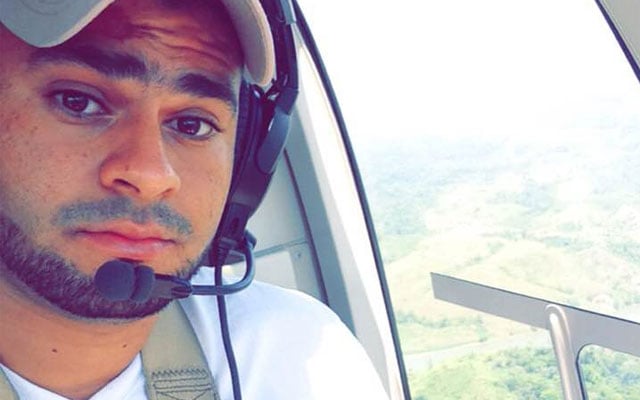The following story is an article written by a member of the global bleeding disorders community to the World Federation of Hemophilia (WFH). In this article, Felix Abener Flores Oliva from Honduras shares his story.
I was born on December 21, 1997, in Puerto Lempira, Honduras. At six months of age I was sleeping in a hammock, and I fell and hit my head on the floor. I was rushed to the hospital in Puerto Lempira, but doctors could not control my bleed [and did not test me for hemophilia until six years later]. I was then transferred to Atlántida hospital for three months, where a vein was cauterized, and where three operations were done on my forehead. According to my parents, it was a very hard and sad process.
My hemophilia was only diagnosed at the age of six. It took a long time for the doctors to make the diagnosis because hemophilia wasn’t well known in Honduras and there was a lack of proper equipment at the hospital. In fact, I came close to being transferred to Costa Rica, where they were better equipped.
After my diagnosis I started receiving plasma treatment, but I had many painful bleeds and I suffered a lot. Fortunately, the Hemophilia Foundation of Honduras started to help me. They provided me with factor more regularly and my quality of life started to improve.
I still sometimes have complications due to my hemophilia. For example, I often have trouble with my knee, but I try to not pay attention to it. Fortunately, having access to factor helps me a lot, because I get better quickly. I keep fighting and try to stay positive despite the adversity I’ve experienced, because I want to become an example for other young people with a bleeding disorder, and because I want to support my parents who fought so hard for me.
The content above has been edited for clarity.
To find out more about the WFH Humanitarian Aid Program, please click here.
About the WFH Humanitarian Aid Program
The WFH Humanitarian Aid Program improves the lack of access to care and treatment by providing much-needed support for people with inherited bleeding disorders in developing countries. By providing patients with a more predictable and sustainable flow of humanitarian aid donations, the WFH Humanitarian Aid Program makes it possible for patients to receive consistent and reliable access to treatment and care. None of this would be possible without the generous support of Sanofi and Sobi, our Founding Visionary Contributors; Bayer, CSL Behring and Roche, our Visionary Contributors; Grifols, our Leadership Contributor; and Takeda and Japan Blood Products Organization, our Contributors. To learn more about the WFH Humanitarian Aid Program, visit www.treatmentforall.org.













